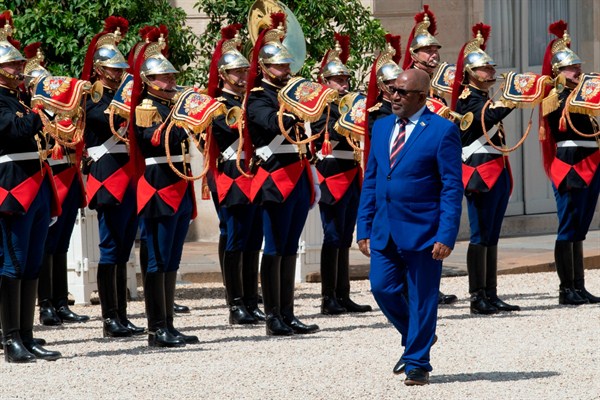Legislative elections in Comoros last month were dominated by President Azali Assoumani’s party, the Convention for the Renewal of Comoros, or CRC. Opposition parties boycotted the vote, arguing it was rigged against them, and the CRC-led coalition won 19 of the 24 seats that were contested. Runoffs will be held later this month for constituencies where no candidate took a majority of the vote. But last month’s results alone have already made the legislature “no more than a rubber stamp” for Assoumani’s agenda, says Simon Massey, a senior lecturer in international relations at Coventry University. In an email interview with WPR, he discusses the difficult path ahead for the opposition in Comoros.
World Politics Review: Why did opposition parties boycott the recent vote? What has Assoumani done in recent months to tilt the playing field in his favor?
Simon Massey: Ever since winning the 2016 presidential election by a slender margin, Assoumani has displayed signs of creeping authoritarianism. In 2018, his government held a referendum to revise Comoros’ constitution. Among other changes, it extended presidential term limits, potentially allowing Assoumani to remain in office until 2029, and abolished a power-sharing arrangement between the country’s three main islands. After the changes were overwhelmingly approved despite opposition calls to boycott the referendum, Assoumani called an early presidential election for March 2019. He won that vote in the first round despite serious flaws in the electoral process.

